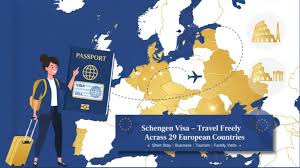
Despicable, dreadful, and vile—what once was an avenue for interacting, connecting, and collaborating now sees itself in a tarnished position. Who would’ve thought that the very innovation that seemingly attested as the center of every individual’s life, the very innovation that revolutionized things far imagined by our predecessors, the very innovation that brought our islands, alienated as they may be, together, now poses as the channel that would sweep amongst our unity and drive away the most imperative possession that is a privilege to each and every one of us—the truth.
When I was around seven, I learned about the internet. It was young and acquitted, likely a reminiscence of a child’s innocence. I learned about a social website called Facebook where I could gain new friends I never met, play exciting games that never failed to bring me bliss, post freely about my thoughts, and most importantly, talk to people without having to go about the inconvenience of being in front of them face to face. Not only was communicating a challenge of presence, it could also be uneasy for some who suffer certain fears or infirmities communally. Nevertheless, this then growing social platform was of deliberate succor to me, and I’m sure countless folks could relate. Even a sundry of groups, associations, and institutions made use of the advantage the internet offered. It provided for them a platform that gave them a superlative audience against their competitors—it gave them an edge.
The internet has brought to us what thousands of years of human existence could not—a profound way of communicating. With literally a single click, one becomes capable of traversing the physical limitations of interacting. The world has then entered the information age. But as one may presume, this age offers too great of a freedom and responsibility too perilously disregarded.
Its inevitability as a means of disseminating information becomes too much of a reliance that causes it to be taken advantage of. And through the years, the essence of being installed in this cyberspace has then become dangerous—it has become the terrain of false information.
The modern world is now a terrain of false information, with, ironically, the internet known to be its steward. A tiny drop of honey, when left unaccompanied, would be spotted by a single ant, and would then hastily spread about it to its ravenous colony longing for nourishment. Likewise, false information imposed to the mind of an individual would rapidly be imposed to the minds of many more.
The problem is indefinitely introduced to the people as it is new and unaccustomed to the likes of most. In turn, the problem is often presumed as adaptable and controllable when it deems otherwise. Misinformation instigates social unrest in the society and causes tension among different parties. At once, the power of this predicament can even cause the welfare of one’s life. For instance, a certain somebody is able to compose a deceitful statement online about someone he/she despises, through a dummy account (usually termed as a “troll” account which means a fake account). People, being unaccustomed to misinformation, insentiently believe what they see.
This is the origination of most depression cases—online lashing that has no factuality.
The delinquency this matter offshoots starts with what people aren’t knowledgeable of. People aren’t conscious of what to do during instances when they face the problem. To say simply, people aren’t aware. They are facing a contemporary problem that had no chance to be combatted before. How on earth could someone such as a juvenile pose to solve such a difficulty?
There was a time when I was scrolling over some Facebook posts when I precipitously came across an article entitled “Why you should never visit the Philippines.” Promptly, I clicked and thenceforth witnessed thousands and thousands of shares pertaining to the post with captions that scourge and denounce it as idiotic. As a Filipino myself, I was infuriated and offended. With my mind at its peak of emotion, I decided to share the post immediately; however, I suddenly thought about reading the article first upon massive dismay. With my eyes heaving upon my skull, I was shocked at sight. Upon a few sentences ahead, I realized that the article was not meant to mortify the country but rather honor its vast beauty. There and then, I came to apprehend and learn that at hand, I should always examine information thoroughly first instead of formulating a prejudiced conclusion. Unintentionally, by sharing things that I only believe and not certify to be true, I may see myself as one of the agents of misinformation.
By this experience, I learned and discovered how I could help other people who may suffer the same consequences if I had shared that article. In this light, how can one attempt to scuffle fake news? Though somehow abstract, I’d like to contend some solutions someone as young as I am has got.
For one, we could construct informational posters revolving around the essence of misinformation. These posters encompass parameters and cues that display how to spot fake information. When discerning fake information, the posters would also exhibit how to appropriately deal with them. Posters seem bland at first, but they essentially hold a multitude of information that are straightforward (the propensity of most is to study instructions through lessons—somewhat time exhausting). Moreover, posters attract interest effortlessly due to their striking features and are able to gauge more knowledge into their viewers than mere lessons.
Consequently,we could encourage schools to impart strong provisions for bringing about awareness regarding this subject. Schools should oblige its students to partake in social undertakings that would substantiate its students into contributing in nation building. With this, educational institutions may designate their portion by hosting programs such as seminarsthat focuses on handling fake information.These institutions may invite renowned journalists, knowledgeable about the matter, that would talk about their experience. This facilitates and alleviates the burden of having to experience the problem (being victimized by fake information); instead, people could learn from others’ experiences.
Yet, in my opinion, here is the most powerful means we could provide people: we could create essays conferring and expounding the definition of misinformation, formally acquainting society to the issue. I believe that with the right words, it is conceivable to persuade people and to shape their minds towards what’s veracious.
The primary pursuit of misinformation is people. Mass media being the medium, the sole purpose of doing so (spreading misinformation, whatever the purpose may be) is backed up by the conviction that it is to be believed. What I am entailing is that the way to help prevent its spread is not by eradicating the problem itself, but by taking the eagle’s perception and gazing over instead at who’s being targeted. We stop the dispersion of misinformation when we become aware of what’s what. Just as how I have become aware of how to deal with situations like these, I can spread awareness through various means.
To take something apart, examine, and later repair if necessary—perhaps we ought to overlook what we know and see things later ostensibly.
Perhaps, we ought to overhaul ourselves. To begin with, we all deserve the truth.
Author: Gavielle Gerico L. Cruz


